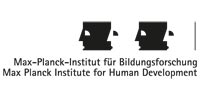

The way we make decisions shapes the way we experience the environment. As a result, our brain activity reflects not only our sensory experiences, but also our ongoing decision making. When we recall an experience or decision, the same brain activation patterns can be measured—provided that they are stored in our memory.
The hippocampus, a region located on the inner edge of the temporal cortex, is known to play a key role in learning and memory processes. What exactly happens in the hippocampus after we make complex decisions has now been investigated by Nicolas Schuck, head of the research group NeuroCode at the Max Planck Institute for Human Development, and Yael Niv, Professor of Neurosciences at Princeton University.
In their study, 33 participants performed several 40-minute blocks of a complex decision task while lying in an MRI scanner. In the process, the researchers recorded the activities both in the orbitofrontal cortex, located in the most frontal part of the brain, just above the eyes, and in the hippocampus.
As they had already shown in previous experiments, participants’ mental decision-making processes were reflected in activity patterns in the orbitofrontal cortex. A specific neural pattern emerged for each type of decision.
After each block of tasks, participants were told to take a five-minute break and lie quietly in the scanner. The researchers were then able to observe what happens exactly in the brain during such rest periods after a complex decision task. Their observations showed that the hippocampus reactivated, or replayed, the same activity patterns that had been observed during the preceding decision task.
“Even though participants were resting quietly, the hippocampus replayed the decision-making task. The replay reflected the order in which experiences were made during the task, but possibly at a much faster speed.
This could suggest that rest is important for learning new tasks,” says Nicolas Schuck, head of the research group NeuroCode at the Max Planck Institute for Human Development.
Until now, researchers had no noninvasive methods at their disposal to monitor this process precisely in humans. Previously, they often assumed that rapid neural activities could not be measured because fMRI does not measure single electrical impulses but instead picks up on a sluggish and indirect signal related to blood flow.
Most previous research has therefore focused on rodents, where it is possible to observe the rapid neural repetitions in the hippocampus with the help of sensors implanted into the brain.
Thanks to an algorithm programmed to recognize patterns, this phenomenon can now be traced with MRI. The researchers first trained the algorithm to recognize activity patterns in the hippocampus that are hard to detect by the human eye or by regular analyses. Finally, they recorded the activity patterns of the hippocampus at rest and analyzed in which order these were recognized by the algorithm.
“The ability of the hippocampus to replay experiences seems to play a central role in transforming experiences into representations that help us in decision making,” says Yael Niv, Professor of Psychology and Neuroscience at Princeton University. With this new method, researchers can now begin to understand more clearly the meaning of this process in humans.
“Only when we are able to observe our own brain more precisely can we understand the role of quick repetitions in the hippocampus in, for example, making plans or consciously recalling something from memory. We hope that this new method will help us to better understand what this process has to do with our subjective experiences,” says Nicolas Schuck.
The Max Planck Institute for Human Development in Berlin was founded in 1963. It is an interdisciplinary research institution dedicated to the study of human development and education. The Institute belongs to the Max Planck Society for the Advancement of Science, one of the leading organizations for basic research in Europe.
Schuck, N. W., & Niv, Y. (2019). Sequential replay of non-spatial task states in the human hippocampus. Science, 364(6447). http://doi.org/10.1126/science.aaw5181
https://www.mpib-berlin.mpg.de/en/media/2019/07/while-resting-our-brain-replays-…












